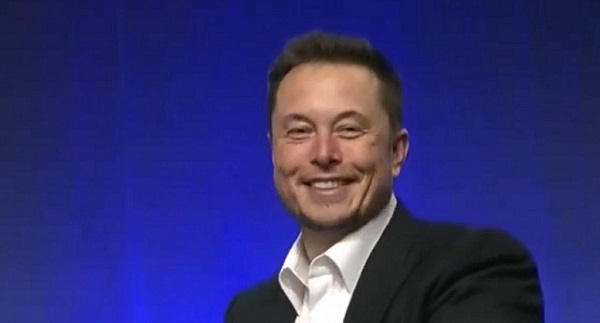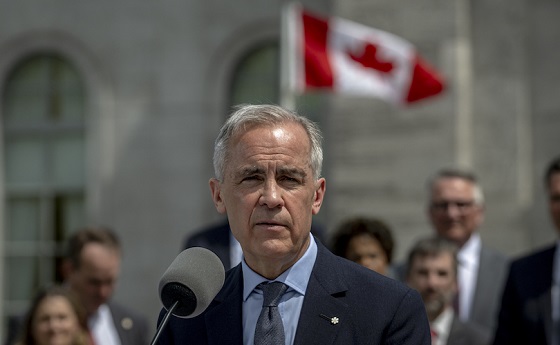Business
Australia passes social media ban for kids under 16 sparking online surveillance concerns

From LifeSiteNews
While the official goal of the bill is to protect the mental health of children and adolescents, critics have raised concerns that the bill would establish an online surveillance system for all Australians, similar to Communist China.
Australia has passed a social media ban for children under the age of 16, a seemingly prudent move but one that has raised serious concerns about online surveillance.
On Thursday, November 28, the Australian Senate passed the bill with a 34-19 vote, making it the world’s first social media ban for under-16-year-olds.
The “Online Safety Amendment Bill 2024” threatens social media companies with up to 50 million AUD (32 million USD) if they fail to comply with the requirement of verifying the age of their users.
While the official goal of the bill is to protect the mental health of children and adolescents, critics have raised concerns that the bill would establish an online surveillance system for all Australians, similar to Communist China.
“Seems like a backdoor way to control access to the Internet by all Australians,” Elon Musk wrote on X.
Journalist and free speech advocate Michael Shellenberger said that “this bill is a Trojan horse to create digital IDs, which is a giant leap into the totalitarian dystopia depicted in ‘Black Mirror,’ and already in place in China.”
The bill, which was rushed through parliament, does not give any details about how age verification will work and will not come into force until the end of next year. On November 26, the Australian Senate’s Environment and Communications Legislation Committee approved the bill under the condition that social media platforms must not force their users to give them their personal data, including information from government-issued IDs.
While this provision appears to rule out the use of Digital IDs for now, the question of how it will be enforced remains. The Guardian reports that supporters of the bill have said that platforms may use biometric methods, such as facial scans, to verify the age of its users. This would, of course, mean that social media companies would collect the biometric data of all its users in Australia.
The explanatory memorandum to the bill says that there will be “robust” privacy protections, “including prohibiting platforms from using information collected for age assurance purposes for any other purpose unless explicitly agreed to by the individual.”
“Once the information has been used for age assurance or any other agreed purpose, it must be destroyed by the platform (or any third party contracted by the platform),” the memorandum states.
However, the memorandum also explains that “compliance with the minimum age obligation” will likely require platforms “to implement systems and procedures to monitor and respond to age-restricted users circumventing age assurance.”
This suggests that social media companies could continually monitor a user while using the platform, for instance, by repeatedly doing face scans to ensure that the user is still the same and at least 16 years old.
The vaguely worded bill also does not specify which companies will be affected by the age restriction. Communications minister Michelle Rowland said that TikTok, Instagram, X, Reddit, Facebook, and Snapchat will likely be included, while YouTube will be excluded due to its educational purposes.
In addition to the under-16 social media ban requiring age verification of users, the Australian government also sought to curb speech online via a draconian “Misinformation and Disinformation Bill.” However, the government had to abandon the controversial bill after facing significant cross-party opposition in the Senate. The bill would have forced social media companies to remove information that was “reasonably verifiable as false” or if “misinformation and disinformation” could cause serious harm. The vague definitions of these terms would have allowed social media companies or the government to arbitrarily censor content it deemed unwanted.
Automotive
Elon Musk Poised To Become World’s First Trillionaire After Shareholder Vote


From the Daily Caller News Foundation
At Tesla’s Austin headquarters, investors backed Musk’s 12-step plan that ties his potential trillion-dollar payout to a series of aggressive financial and operational milestones, including raising the company’s valuation from roughly $1.4 trillion to $8.5 trillion and selling one million humanoid robots within a decade. Musk hailed the outcome as a turning point for Tesla’s future.
“What we’re about to embark upon is not merely a new chapter of the future of Tesla but a whole new book,” Musk said, as The New York Times reported.
Dear Readers:
As a nonprofit, we are dependent on the generosity of our readers.
Please consider making a small donation of any amount here.
Thank you!
The decision cements investor confidence in Musk’s “moonshot” management style and reinforces the belief that Tesla’s success depends heavily on its founder and his leadership.
Tesla Annual meeting starting now
https://t.co/j1KHf3k6ch— Elon Musk (@elonmusk) November 6, 2025
“Those who claim the plan is ‘too large’ ignore the scale of ambition that has historically defined Tesla’s trajectory,” the Florida State Board of Administration said in a securities filing describing why it voted for Mr. Musk’s pay plan. “A company that went from near bankruptcy to global leadership in E.V.s and clean energy under similar frameworks has earned the right to use incentive models that reward moonshot performance.”
Investors like Ark Invest CEO Cathie Wood defended Tesla’s decision, saying the plan aligns shareholder rewards with company performance.
“I do not understand why investors are voting against Elon’s pay package when they and their clients would benefit enormously if he and his incredible team meet such high goals,” Wood wrote on X.
Norway’s sovereign wealth fund, Norges Bank Investment Management — one of Tesla’s largest shareholders — broke ranks, however, and voted against the pay plan, saying that the package was excessive.
“While we appreciate the significant value created under Mr. Musk’s visionary role, we are concerned about the total size of the award, dilution, and lack of mitigation of key person risk,” the firm said.
The vote comes months after Musk wrapped up his short-lived government role under President Donald Trump. In February, Musk and his Department of Government Efficiency (DOGE) team sparked a firestorm when they announced plans to eliminate the U.S. Agency for International Development, drawing backlash from Democrats and prompting protests targeting Musk and his companies, including Tesla.
Back in May, Musk announced that his “scheduled time” leading DOGE had ended.
Business
Carney’s Deficit Numbers Deserve Scrutiny After Trudeau’s Forecasting Failures

From the Frontier Centre for Public Policy
By Conrad Eder
Frontier Centre for Public Policy study reveals a decade of inflated Liberal forecasts—a track record that casts a long shadow over Carney’s first budget
The Frontier Centre for Public Policy has released a major new study revealing that the Trudeau government’s federal budget forecasts from 2016 to 2025 were consistently inaccurate and biased — a record that casts serious doubt on the projections in Prime Minister Mark Carney’s first budget.
Carney’s 2025–26 federal budget forecasts a $78.3-billion deficit — twice the size projected last year and four times what was forecast in Budget 2022. But if recent history is any guide, Canadians have good reason to question whether even this ballooning deficit reflects fiscal reality.
The 4,000-word study, Measuring Federal Budgetary Balance Forecasting Accuracy and Bias, by Frontier Centre policy analyst Conrad Eder, finds that forecast accuracy collapsed after the Trudeau government took office:
- Current-year forecasts were off by an average of $22.9 billion, or one per cent of GDP.
- Four-year forecasts missed the mark by an average of $94.4 billion, or four per cent of GDP.
- Long-term projections consistently overstated Canada’s fiscal health, showing a clear optimism bias.
Eder’s analysis shows that every three- and four-year forecast under Trudeau predicted a stronger financial position than what actually occurred, masking the true scale of deficits and debt accumulation. The study concludes that this reflects a systemic optimism bias, likely rooted in political incentives: short-term optics with no regard to long-term consequences.
“With Prime Minister Carney now setting Canada’s fiscal direction, it’s critical to assess his projections in light of this track record,” said Eder. “The pattern of bias and inaccuracy under previous Liberal governments gives reason to doubt the credibility of claims that deficits will shrink over time. Canadians deserve fiscal forecasts that are credible and transparent — not political messaging disguised as economic planning.”
The study warns that persistent optimism bias erodes fiscal accountability, weakens public trust and limits citizens’ ability to hold government to account — a threat to both economic sustainability and democratic transparency.
-

 Justice1 day ago
Justice1 day agoCarney government lets Supreme Court decision stand despite outrage over child porn ruling
-

 Daily Caller2 days ago
Daily Caller2 days agoUS Eating Canada’s Lunch While Liberals Stall – Trump Admin Announces Record-Shattering Energy Report
-

 Business1 day ago
Business1 day agoCarney’s budget spares tax status of Canadian churches, pro-life groups after backlash
-

 COVID-191 day ago
COVID-191 day agoFreedom Convoy leader Tamara Lich to appeal her recent conviction
-

 Daily Caller1 day ago
Daily Caller1 day agoUN Chief Rages Against Dying Of Climate Alarm Light
-

 Business2 days ago
Business2 days agoPulling back the curtain on the Carney government’s first budget
-

 Energy2 days ago
Energy2 days agoEby should put up, shut up, or pay up
-

 Business2 days ago
Business2 days agoThe Liberal budget is a massive FAILURE: Former Liberal Cabinet Member Dan McTeague










